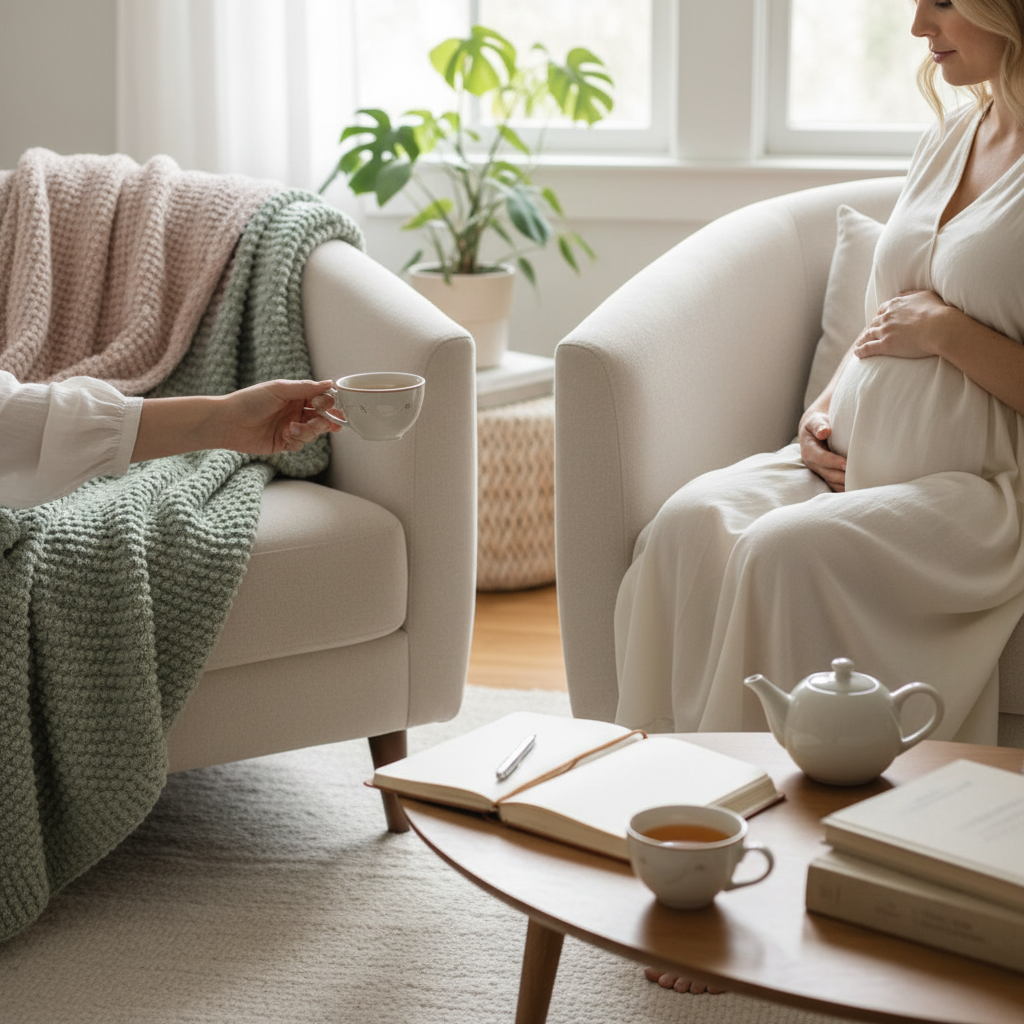
Planning Quality Time Before Baby Arrives
The journey through pregnancy brings countless changes, including a natural shift in your relationship dynamics as you prepare to welcome a new family member. Making the most of your time together before baby arrives can strengthen your connection and create meaningful memories that will sustain you during the challenging newborn period.
Key Highlights
Here’s why intentional quality time matters during pregnancy:
- Strengthens your relationship foundation before the demands of newborn care
- Creates lasting memories to cherish during the transition to parenthood
- Provides opportunities to discuss expectations and responsibilities
- Allows for self-care and personal preparation
- Helps process emotional changes together before baby arrives
Understanding Changes: Creating Meaningful Couple Connections

The second trimester often brings renewed energy and fewer physical symptoms, making it an ideal time to focus on your relationship. Creating a date night bucket list can help ensure you’re making time for connection amid doctor appointments and baby preparations. Consider activities that reflect your relationship before pregnancy—whether that’s hiking favorite trails, enjoying special restaurants, or simply taking evening walks to discuss your hopes and dreams for your growing family.
Writing letters to each other and your baby can be especially meaningful during this time. These heartfelt messages capture your thoughts and emotions during pregnancy and become treasured keepsakes. According to relationship experts at the Gottman Institute, couples who intentionally maintain their connection during pregnancy report smoother transitions to parenthood and greater relationship satisfaction in the months following birth.
Understanding Changes: Planning the Perfect Babymoon
Many couples choose to take a “babymoon”—one final getaway before baby arrives—especially during the 2ns trimester when most pregnancy symptoms have eased and travel is generally considered safest. The ideal window for most babymoons is between weeks 21-28, when energy levels are higher and before the physical discomforts of later pregnancy typically begin.
When planning your babymoon, consider destinations that offer relaxation and limited physical exertion. Always consult with your healthcare provider before making travel plans, especially regarding long flights or destinations that might require vaccinations. For those unable to travel far, a local staycation can be equally meaningful—book a night at a nearby hotel, schedule couple’s massages, or create a home retreat weekend with no chores, phones, or interruptions.
Your Body & Baby: Preparing Your Relationship for Parenthood

The 2nd trimester provides a valuable window to have important conversations about roles and responsibilities after baby arrives. Set aside dedicated time to discuss expectations about nighttime care, feeding methods, division of household tasks, and parenting approaches. These conversations are most productive when approached as a team with mutual respect and flexibility, recognizing that some adjustments will naturally occur after baby arrives.
If there are existing relationship concerns, addressing them before your baby’s birth can prevent additional strain during the postpartum period. Family therapist Dr. John Gottman recommends couples work through conflicts using “gentle startups” that avoid blame and focus on expressing needs clearly. Many hospitals and birth centers offer relationship-focused childbirth classes that include communication strategies specifically designed for the transition to parenthood, which can be especially helpful for first-time parents.
Your Body & Baby: Practical Bonding Opportunities
Finding ways to share pregnancy milestones can deepen your connection and help non-pregnant partners feel more involved. Attending prenatal appointments together allows both parents to hear the heartbeat, see ultrasound images, and ask questions directly. If pregnancy headaches second trimester or other discomforts arise, having your partner present at appointments can help them understand what you’re experiencing.
Creating the nursery together provides a tangible project that helps both parents prepare for baby’s arrival. Whether painting walls, assembling furniture, or choosing decor, these activities help make the pregnancy feel real. Many couples also find registry creation to be a meaningful shared experience—researching baby products together and making decisions about what your family needs can spark important conversations about parenting styles and priorities.
Healthy Living Tips: Self-Care Before Baby Care

Making time for individual self-care during the 2nd month pregnancy and beyond helps both parents prepare emotionally for the demands of new parenthood. Prenatal massages can address physical discomforts while providing much-needed relaxation time. The American College of Obstetricians and Gynecologists recommends regular self-care activities during pregnancy to reduce stress and improve overall wellbeing.
Encourage each other to maintain personal interests and relationships during pregnancy, which helps preserve individual identity during this major life transition. Whether it’s attending a concert, meeting friends for dinner, or simply enjoying a quiet afternoon with a book, these moments of personal renewal benefit the entire family. Research from the University of Michigan shows that parents who maintain personal interests during pregnancy report less stress and greater satisfaction in the early parenting period.
Healthy Living Tips: Mental and Emotional Readiness
The emotional aspects of preparing for parenthood are just as important as the practical ones. Create space for open discussions about your hopes, fears, and uncertainties about becoming parents. Acknowledging these feelings together can reduce anxiety and strengthen your emotional connection. Consider creating a shared journal where you can record thoughts about parenthood or use conversation prompts designed specifically for expectant parents.
Planning for continued connection after baby arrives is equally important. Discuss how you’ll maintain your relationship amid the demands of new parenthood, perhaps by scheduling regular check-ins or designating time for brief daily connection. Identifying support systems before baby arrives—whether family, friends, or postpartum doulas—can relieve pressure on your relationship during the adjustment period. According to research from the Adelphi University Institute for Parenting, couples who proactively discuss postpartum support report smoother transitions and greater partnership satisfaction after birth.
Embracing This Special Time Together
The time before your baby arrives is unique—a precious window between your life as a couple and your future as a family. Making the most of this period not only creates wonderful memories but also strengthens the foundation of your relationship as you prepare for the joyful challenges of parenthood. By prioritizing connection, communication, and care for each other now, you’re developing skills and patterns that will serve your growing family well for years to come.
Sources
- The Gottman Institute – Building a Great Relationship During Pregnancy
- American College of Obstetricians and Gynecologists – Travel During Pregnancy
- National Institute of Child Health and Human Development – Prenatal Care
- University of Michigan Family Relationships Laboratory – Transition to Parenthood
- Adelphi University Institute for Parenting
